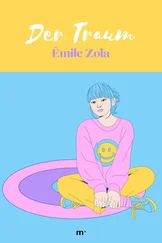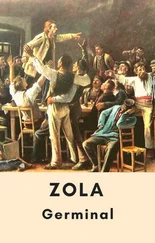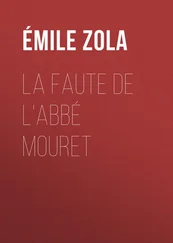Émile Zola - Fruitfulness
Здесь есть возможность читать онлайн «Émile Zola - Fruitfulness» — ознакомительный отрывок электронной книги совершенно бесплатно, а после прочтения отрывка купить полную версию. В некоторых случаях можно слушать аудио, скачать через торрент в формате fb2 и присутствует краткое содержание. Жанр: literature_19, foreign_antique, foreign_prose, на английском языке. Описание произведения, (предисловие) а так же отзывы посетителей доступны на портале библиотеки ЛибКат.
- Название:Fruitfulness
- Автор:
- Жанр:
- Год:неизвестен
- ISBN:нет данных
- Рейтинг книги:5 / 5. Голосов: 1
-
Избранное:Добавить в избранное
- Отзывы:
-
Ваша оценка:
- 100
- 1
- 2
- 3
- 4
- 5
Fruitfulness: краткое содержание, описание и аннотация
Предлагаем к чтению аннотацию, описание, краткое содержание или предисловие (зависит от того, что написал сам автор книги «Fruitfulness»). Если вы не нашли необходимую информацию о книге — напишите в комментариях, мы постараемся отыскать её.
Fruitfulness — читать онлайн ознакомительный отрывок
Ниже представлен текст книги, разбитый по страницам. Система сохранения места последней прочитанной страницы, позволяет с удобством читать онлайн бесплатно книгу «Fruitfulness», без необходимости каждый раз заново искать на чём Вы остановились. Поставьте закладку, и сможете в любой момент перейти на страницу, на которой закончили чтение.
Интервал:
Закладка:
“Ah! dear heart, forgive me; I doubted both of us. It would be impossible for either of us to sleep unless you forgive me. Well, let the others hold us in derision and contempt if they choose. Let us love and live as nature tells us, for you are right: therein lies true wisdom and true courage.”
V
MATHIEU rose noiselessly from his little folding iron bedstead beside the large one of mahogany, on which Marianne lay alone. He looked at her, and saw that she was awake and smiling.
“What! you are not asleep?” said he. “I hardly dared to stir for fear of waking you. It is nearly nine o’clock, you know.”
It was Sunday morning. January had come round, and they were in Paris. During the first fortnight in December the weather had proved frightful at Chantebled, icy rains being followed by snow and terrible cold. This rigorous temperature, coupled with the circumstance that Marianne was again expecting to become a mother, had finally induced Mathieu to accept Beauchene’s amiable offer to place at his disposal the little pavilion in the Rue de la Federation, where the founder of the works had lived before building the superb house on the quay. An old foreman who had occupied this pavilion, which still contained the simple furniture of former days, had lately died. And the young folks, desiring to be near their friend, worthy Dr. Boutan, had lived there for a month now, and did not intend to return to Chantebled until the first fine days in April.
“Wait a moment,” resumed Mathieu; “I will let the light in.”
He thereupon drew back one of the curtains, and a broad ray of yellow, wintry sunshine illumined the dim room. “Ah! there’s the sun! And it’s splendid weather – and Sunday too! I shall be able to take you out for a little while with the children this afternoon.”
Then Marianne called him to her, and, when he had seated himself on the bed, took hold of his hand and said gayly: “Well, I hadn’t been sleeping either for the last twenty minutes; and I didn’t move because I wanted you to lie in bed a little late, as it’s Sunday. How amusing to think that we were afraid of waking one another when we both had our eyes wide open!”
“Oh!” said he, “I was so happy to think you were sleeping. My one delight on Sundays now is to remain in this room all the morning, and spend the whole day with you and the children.” Then he uttered a cry of surprise and remorse: “Why! I haven’t kissed you yet.”
She had raised herself on her pillows, and he gave her an eager clasp. In the stream of bright sunshine which gilded the bed she herself looked radiant with health and strength and hope. Never had her heavy brown tresses flowed down more abundantly, never had her big eyes smiled with gayer courage. And sturdy and healthful as she was, with her face all kindliness and love, she looked like the very personification of Fruitfulness, the good goddess with dazzling skin and perfect flesh, of sovereign dignity.
They remained for a moment clasped together in the golden sunshine which enveloped them with radiance. Then Mathieu pulled up Marianne’s pillows, set the counterpane in order, and forbade her to stir until he had tidied the room. Forthwith he stripped his little bedstead, folded up the sheets, the mattress, and the bedstead itself, over which he slipped a cover. She vainly begged him not to trouble, saying that Zoe, the servant whom they had brought from the country, could very well do all those things. But he persisted, replying that the servant plagued him, and that he preferred to be alone to attend her and do all that there was to do. Then, as he suddenly began to shiver, he remarked that the room was cold, and blamed himself for not having already lighted the fire. Some logs and some small wood were piled in a corner, near the chimney-piece.
“How stupid of me!” he exclaimed; “here am I leaving you to freeze.”
Then he knelt down before the fireplace, while she protested: “What an idea! Leave all that, and call Zoe.”
“No, no, she doesn’t know how to light the fire properly, and besides, it amuses me.”
He laughed triumphantly when a bright clear fire began to crackle, filling the room with additional cheerfulness. The place was now a little paradise, said he; but he had scarcely finished washing and dressing when the partition behind the bed was shaken by a vigorous thumping.
“Ah! the rascals,” he gayly exclaimed. “They are awake, you see! Oh! well, we may let them come, since to-day is Sunday.”
For a few moments there had been a noise as of an aviary in commotion in the adjoining room. Prattling, shrill chirping, and ringing bursts of laughter could be heard. Then came a noise as of pillows and bolsters flying about, while two little fists continued pummelling the partition as if it were a drum.
“Yes, yes,” said the mother, smiling and anxious, “answer them; tell them to come. They will be breaking everything if you don’t.”
Thereupon the father himself struck the wall, at which a victorious outburst, cries of triumphal delight, arose on the other side. And Mathieu scarcely had time to open the door before tramping and scuffling could be heard in the passage. A triumphal entry followed. All four of them wore long nightdresses falling to their little bare feet, and they trotted along and laughed, with their brown hair streaming about, their faces quite pink, and their eyes radiant with candid delight. Ambroise, though he was younger than his brothers, marched first, for he was the boldest and most enterprising. Behind him came the twins, Blaise and Denis, who were less turbulent – the latter especially. He taught the others to read, while Blaise, who was rather shy and timid, remained the dreamer of them all. And each gave a hand to little Mademoiselle Rose, who looked like an angel, pulled now to the right and now to the left amid bursts of laughter, while she contrived to keep herself steadily erect.
“Ah! mamma,” cried Ambroise, “it’s dreadfully cold, you know; do make me a little room.”
Forthwith he bounded into the bed, slipped under the coverlet, and nestled close to his mother, so that only his laughing face and fine curly hair could be seen. But at this the two others raised a shout of war, and rushed forward in their turn upon the besieged citadel.
“Make a little room for us, mamma, make a little room! By your back, mamma! Near your shoulder, mamma!”
Only little Rose remained on the floor, feeling quite vexed and indignant. She had vainly attempted the assault, but had fallen back. “And me, mamma, and me,” she pleaded.
It was necessary to help her in her endeavors to hoist herself up with her little hands. Then her mother took her in her arms in order that she might have the best place of all. Mathieu had at first felt somewhat anxious at seeing Marianne thus disturbed, but she laughed and told him not to trouble. And then the picture they all presented as they nestled there was so charming, so full of gayety, that he also smiled.
“It’s very nice, it’s so warm,” said Ambroise, who was fond of taking his ease.
But Denis, the reasonable member of the band, began to explain why it was they had made so much noise “Blaise said that he had seen a spider. And then he felt frightened.”
This accusation of cowardice vexed his brother, who replied: “It isn’t true. I did see a spider, but I threw my pillow at it to kill it.”
“So did I! so did I!” stammered Rose, again laughing wildly. “I threw my pillow like that – houp! houp!”
They all roared and wriggled again, so amusing did it seem to them. The truth was that they had engaged in a pillow fight under pretence of killing a spider, which Blaise alone said that he had seen. This unsupported testimony left the matter rather doubtful. But the whole brood looked so healthful and fresh in the bright sunshine that their father could not resist taking them in his arms, and kissing them here and there, wherever his lips lighted, a final game which sent them into perfect rapture amid a fresh explosion of laughter and shouts.
Читать дальшеИнтервал:
Закладка:
Похожие книги на «Fruitfulness»
Представляем Вашему вниманию похожие книги на «Fruitfulness» списком для выбора. Мы отобрали схожую по названию и смыслу литературу в надежде предоставить читателям больше вариантов отыскать новые, интересные, ещё непрочитанные произведения.
Обсуждение, отзывы о книге «Fruitfulness» и просто собственные мнения читателей. Оставьте ваши комментарии, напишите, что Вы думаете о произведении, его смысле или главных героях. Укажите что конкретно понравилось, а что нет, и почему Вы так считаете.












